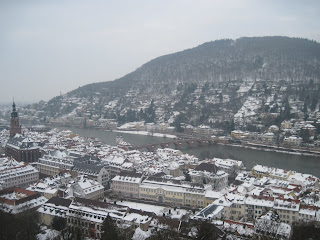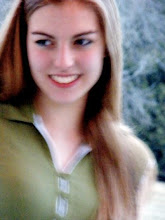

Heidelberg was my favorite German city on this trip. I like that it is a university city and I felt that I could identify with the city because one-third of the population are students. I enjoyed seeing Heidelberg University. It is difficult to believe that the school has existed for over 600 years. I found it interesting that Robert Bunsen, who invented the bunsen burner, once taught there.
I also enjoyed seeing the castle in Heidelberg. The castle is not intact: many parts of it are still in ruins. But somehow that only adds to its charm. Mark Twain also made notice of this in his book A Tramp Abroad1:
1. Twain, Mark, A Tramp Abroad, (New York: Harper and Brothers Publishers, 1879) 278-279.
A ruin must be rightly situated, to be effective. This one could not have been better placed. It stands upon a commanding elevation, it is buried in green woods, there is no level ground about it, but, on the contrary, there are wooded terraces upon terraces, and one looks down through shining leaves into profound chasms and abysses where twilight reigns and the sun cannot intrude. Nature knows how to garnish a ruin to get the best effect. One of these old towers is split down the middle, and one half has tumbled aside. It tumbled in such a way as to establish itself in a picturesque attitude. Then all it lacked was a fitting drapery, and Nature has furnished that; she has robed the rugged mass in flowers and verdure, and made it a charm to the eye. The standing half exposes its arched and cavernous rooms to you, like open, toothless mouths; there, too, the vines and flowers have done their work of grace. The rear portion of the tower has not been neglected, either, but is clothed with a clinging garment of polished ivy which hides the wounds and stains of time. Even the top is not left bare, but is crowned with a flourishing group of trees & shrubs. Misfortune has done for this old tower what it has done for the human character sometimes−improved it
1. Twain, Mark, A Tramp Abroad, (New York: Harper and Brothers Publishers, 1879) 278-279.

No comments:
Post a Comment